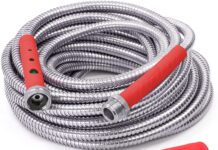When car shopping, one should be aware of the potential for being taken advantage of by a dishonest car dealership. There are many red flags to look out for that can indicate you’re dealing with an untrustworthy dealership. These can range from high-pressure sales tactics to hidden fees and costs. Knowing what to watch out for is key to ensuring you have you’re not getting ripped off.
Car dealerships that practice fraudulent tactics can be liable for serious legal consequences. For example, in California,” under the Song Beverly Consumer Warranty Act, the car manufacturer is obligated to deliver to the consumer a vehicle that conforms to the car manufacturer’s express warranties” (source: luisaguirrelaw/car-dealership-fraud/). Learn which red flags to look out for next time you’re out car shopping.
Pressure to make a quick decision
An honest dealership will make sure you have all the necessary information to make an informed decision. They should provide a detailed overview of the car and any financing options, clearly explain the terms of the sale, and answer your questions. If a dealership gives you little to read through the sales contract or give you the answers to your questions, they are probably not looking out for your best interests.
In these cases, it’s best to walk away and find another dealer who is willing to take the time to listen to your concerns and offer solutions that meet your needs. Moreover, if you feel pressured into signing paperwork or making a down payment without fully understanding the details involved, feel free to ask for more time or advice from family members or friends who understand cars and car buying better than you do. A reputable dealer should be happy to address all of your concerns before asking for a signature on any paperwork.
Unclear or misleading pricing
If it’s too good to be true, it usually is! Be aware of any suspicious offers or deals that seem too good to be true. The dealer should provide you with an itemized list of all costs and fees involved in the purchase, which you can use to compare them to other dealerships and feel confident you are not being overcharged.
The list should include the base price of the vehicle, as well as additional fees such as taxes, registration costs, licensing fees, title charges, extended warranties, and any other miscellaneous expenses.
By carefully reviewing this breakdown, you’ll know you are not paying for any hidden costs.
It’s also wise to investigate the dealership’s reputation and customer satisfaction ratings. Paying attention to these details makes you more likely to have a smooth experience when buying your next car.
Examples of hidden fees to watch out for include documentation fees, “preparation” fees, or even more hidden charges that are often not disclosed up-front.
Unwillingness to negotiate
Unless a dealership has fixed pricing, a good car dealer should be willing to negotiate the price of the vehicle and provide you with tailored financing options to help you save money in the long run. If a salesperson is not accommodating to your needs, it’s best to shop elsewhere. A salesperson should be there to provide support during your car-buying journey. Don’t be afraid
to express your dissatisfaction if something feels off, and walk away if you feel like the car dealer is not giving you a fair offer.
Inflated trade-in values
If you’re thinking about trading in your car, it’s important to understand the true value of your vehicle. Before you agree to a trade-in value, research similar models and get an accurate estimate of what your car is worth by visiting online automotive valuation websites like KBB or Edmunds.
Keep track of any recent repairs or modifications that you’ve made through work orders, images, and anything else you think would help. Having this type of information ahead of time can be extremely helpful during negotiations.
It would help if you also compared dealer offers to get the best deal possible. If you feel a dealership is trying to lowball you on the trade-in value, go elsewhere. While it may take a bit more effort, it’s definitely worth it if you can find a better offer from another dealer or private buyer.
Vague financing terms
Always review the terms of the financing agreement in great detail, including not just the interest rate and monthly payment amount but also the length of the loan.
While a car dealership may make the overall price of a car seem low by offering a low monthly payment, this may come with an extended loan term that could ultimately cost you more in interest payments over time.
With financing, you should also compare different options across various dealerships. Just as you would shop around for the best possible price on a car, make sure you’re shopping around for the best value when financing your vehicle.
Poor customer service
A dealership that is unresponsive to your questions or concerns or unwilling to negotiate can be a major red flag. Such unwillingness to work with you could mean that they have something to hide, or they may need to be more knowledgeable about the vehicle’s features or something else that is not in your best interest. A reputable car dealership will always provide helpful and transparent information.
You can protect yourself from being cheated at a car dealership by being aware of these red flags and taking the time to do your research. Remember to shop around, negotiate, and never be afraid to walk away from a deal that doesn’t feel right. With these tips in mind, car shopping doesn’t have to be daunting, and you can get behind the wheel of your new ride.















